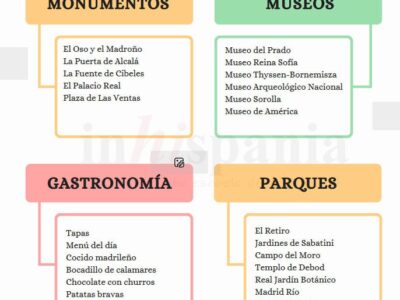The languages spoken around the world are rich in all their elements – from nouns to interjections. While we can learn much from each individual element, we gain even more when these elements combine. Sayings (refranes) represent a fantastic demonstration of how combined words create meaningful wisdom. These popular phrases explain and advise on specific life situations. Here are 10 essential Spanish sayings every learner should know.
1. Like Father, Like Son (De tal palo tal astilla)
Literally translating to “From such a stick comes such a splinter,” this metaphor illustrates how children inherit their parents’ characteristics. The saying works for both positive traits (“Maria paints beautifully – her mother was an artist. Like father, like son!”) and negative ones (“He cheats at cards just like his uncle did”). It emphasizes familial influence through generations.
2. Tell Me Who You Walk With… (Dime con quién andas y te diré quién eres)
Meaning “Tell me who you walk with, and I’ll tell you who you are,” this proverb judges people by their associations. It suggests our companions reveal our true character. Parents often use it warningly: “If all your friends skip school, people will think you do too. Remember – tell me who you walk with…”
3. No Worse Blind Than Who Won’t See (No hay peor ciego que el que no quiere ver)
This philosophical saying addresses willful ignorance. It’s used when someone refuses to acknowledge obvious truths, like a partner ignoring cheating signs: “She texts him constantly, but you pretend not to notice? No worse blind than who won’t see!”
4. Those Who Don’t Run, Fly (El que no corre vuela)
A motivational phrase urging quick action, literally meaning “He who doesn’t run flies.” It paradoxically suggests extreme measures achieve goals. Salespeople use it during limited offers: “Prices increase tomorrow! Those who don’t run, fly – buy today!”
5. Bad Weed Never Dies (Hierba mala nunca muere)
Referring to resilient troublemakers, this agricultural metaphor compares nasty people to invasive weeds. When a toxic colleague gets promoted instead of fired, coworkers might sigh: “Bad weed never dies… now we’re stuck with him as manager!”
6. Put On a Brave Face (Al mal tiempo buena cara)
Meaning “To bad weather, a good face,” this advice recommends optimism during hardships. It works literally (“The picnic’s ruined by rain? Let’s play board games! Al mal tiempo buena cara”) and metaphorically for life’s storms.
7. The Thief Thinks Everyone Steals (Cree el ladrón que todos son de su condición)
This psychological observation notes how people project their flaws onto others. When a liar accuses someone of dishonesty, you might retort: “The thief thinks everyone steals – we know you’re the one faking sick days!”
8. He Who Laughs Last… (El que ríe el último, ríe mejor)
The Spanish version of “He who laughs last laughs best” warns against premature celebration. When a boastful athlete loses unexpectedly, commentators might say: “He mocked his opponent’s training – el que ríe último…”
9. What Doesn’t Kill You… (Lo que no mata engorda)
Literally “What doesn’t kill you fattens you,” this food-related saying justifies questionable decisions. Eating dubious leftovers? “Five-second rule! Lo que no mata engorda.” Its variant “What doesn’t kill you makes you stronger” applies to challenges.
10. The Devil Knows More From Age Than Devilry (Más sabe el diablo por viejo que por diablo)
This colorful phrase values experience over innate traits. When a young employee dismisses an elder’s advice, a coworker might note: “She predicted the market crash – más sabe el diablo por viejo…”
These sayings reveal Spanish culture’s wisdom and humor. Which resonates most? Share your favorite with Spanish friends and ask theirs! As our bonus saying goes: “No vayas a la cama sin aprender algo nuevo” (Don’t go to bed without learning something new).



